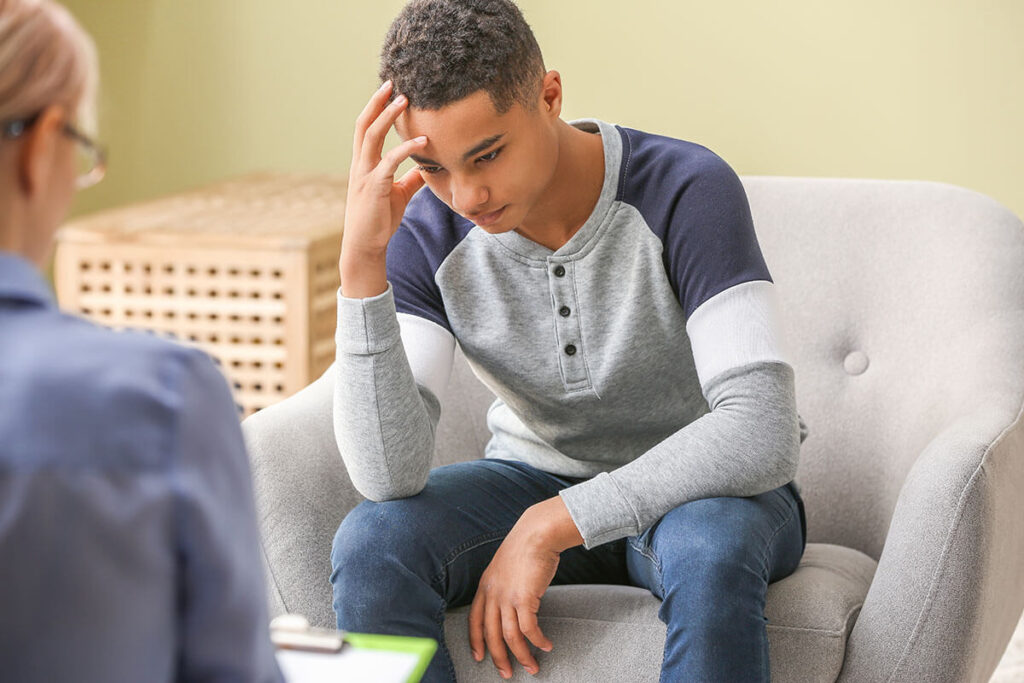PTSD and children is a subject we have only recently begun to understand. It was originally believed that children can bounce back quickly from events and it doesn’t affect them like it does an adult, but that belief has changed. Children are susceptible to the same after-effects as adults. Untreated PTSD in children can result in an adolescent that experiences social isolation, drug and alcohol use, low self-worth, and more. It isn’t always easy to find an adolescent-specific PTSD treatment center, but North Carolina has Foothills at Red Oak to help.
What is PTSD?
When a person feels their life or mental well-being is in danger, their mind and body go into fight-or-flight mode. Normally, the effects of a traumatic event pass over time but for some people, especially if the trauma is a continuing event, the body stays in this state. It is a way of trying to protect the individual from any further trauma. The events that can cause PTSD to include things like natural and man-made disasters, physical, mental or sexual abuse, vehicle accidents, the death of a loved one, and more. The child doesn’t necessarily have to have been the victim. PTSD can result from witnessing such an event. For example, a child that hears of a friend’s murder or suicide can still be affected, as can children who watch parents in a domestic violence situation. The younger a child is, the more difficult it is for them to express what they are feeling. This can make it even more difficult to heal. Let’s take a look at the signs of PTSD in children.
What Are the Signs of PTSD in Children
Children will show signs of PTSD in different ways depending on age, personality, and even genetics. When you talk of PTSD and children you need to look for subtle signs as well as obvious ones and make note whether they started after a traumatic event. The signs of PTSD in children include:
- Avoidance of certain people or places
- Bedwetting
- Sleepwalking
- Acting out sexually or aggressively
- Self-harm
- Chronic stomach or headaches
- Nightmares/night terrors
- Flashbacks
- Depersonalization
- Memory and concentration issues
- Low self-esteem
- Extreme feelings of worry, fear, sadness or anger
The signs of PTSD may start shortly after the trauma or can suddenly appear months or even years later. It is important to get the child evaluated to make sure that the symptoms aren’t anything physical. It is also important to make sure you are aware of possible traumatic events because sometimes the symptoms can resemble other disorders, such as ADHD. This is especially true in younger children.
Untreated PTSD and Children
Many families feel they can get through events and move forward without help. When symptoms continue for six months or more, it is important to get help. Untreated PTSD, and trying to deal with the feelings involved, can create issues with self-esteem, behavior, and overall life. Children may pull away from others, unable to trust. They will often suffer from other disorders as time goes on including anxiety disorders, bipolar disorder, depressive disorders, or substance use disorders. The child’s mental and physical health can become endangered. This, in turn, affects the entire family. PTSD is truly a family problem, not just an individual one.
Foothills at Red Oak Recovery Understand PTSD and Children
Here at Foothills, we help families understand the toll trauma has taken on your adolescent. We help with testing to see if there are other issues that are taking place because of the trauma and we help your family heal. If you feel PTSD may be an issue, contact us today. PTSD and children does not have to be a lifetime sentence. Call us today at 866.300.5275.

